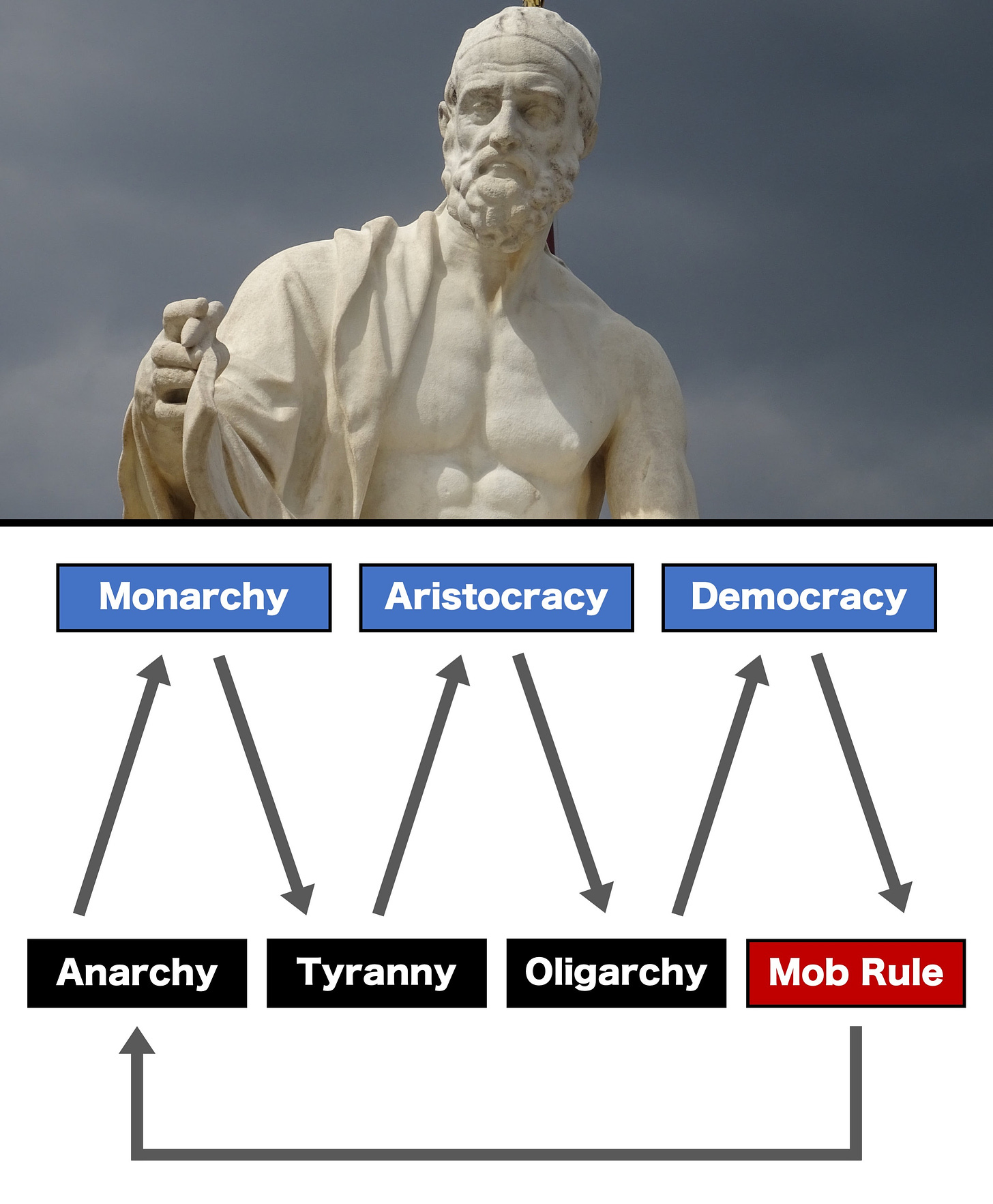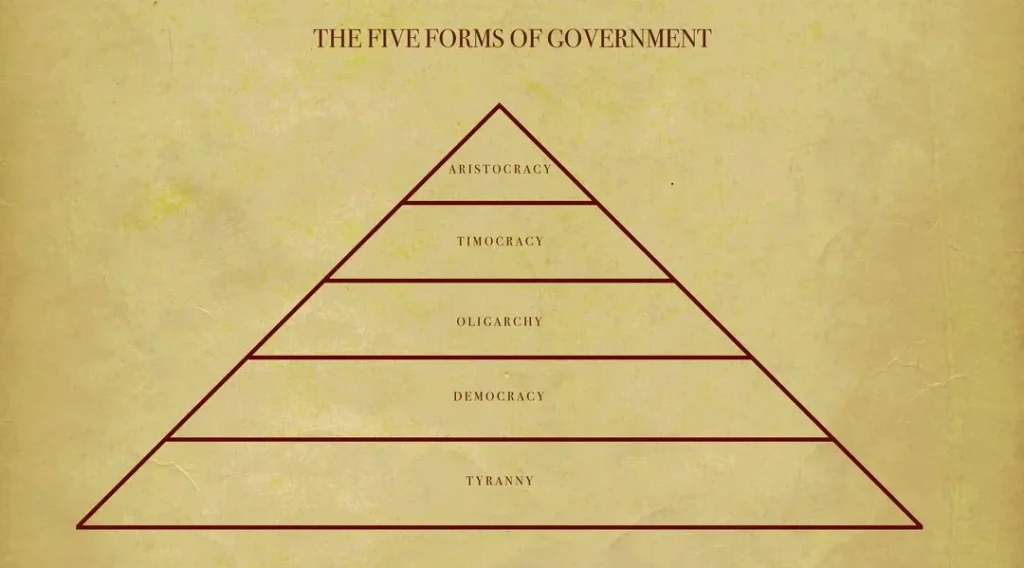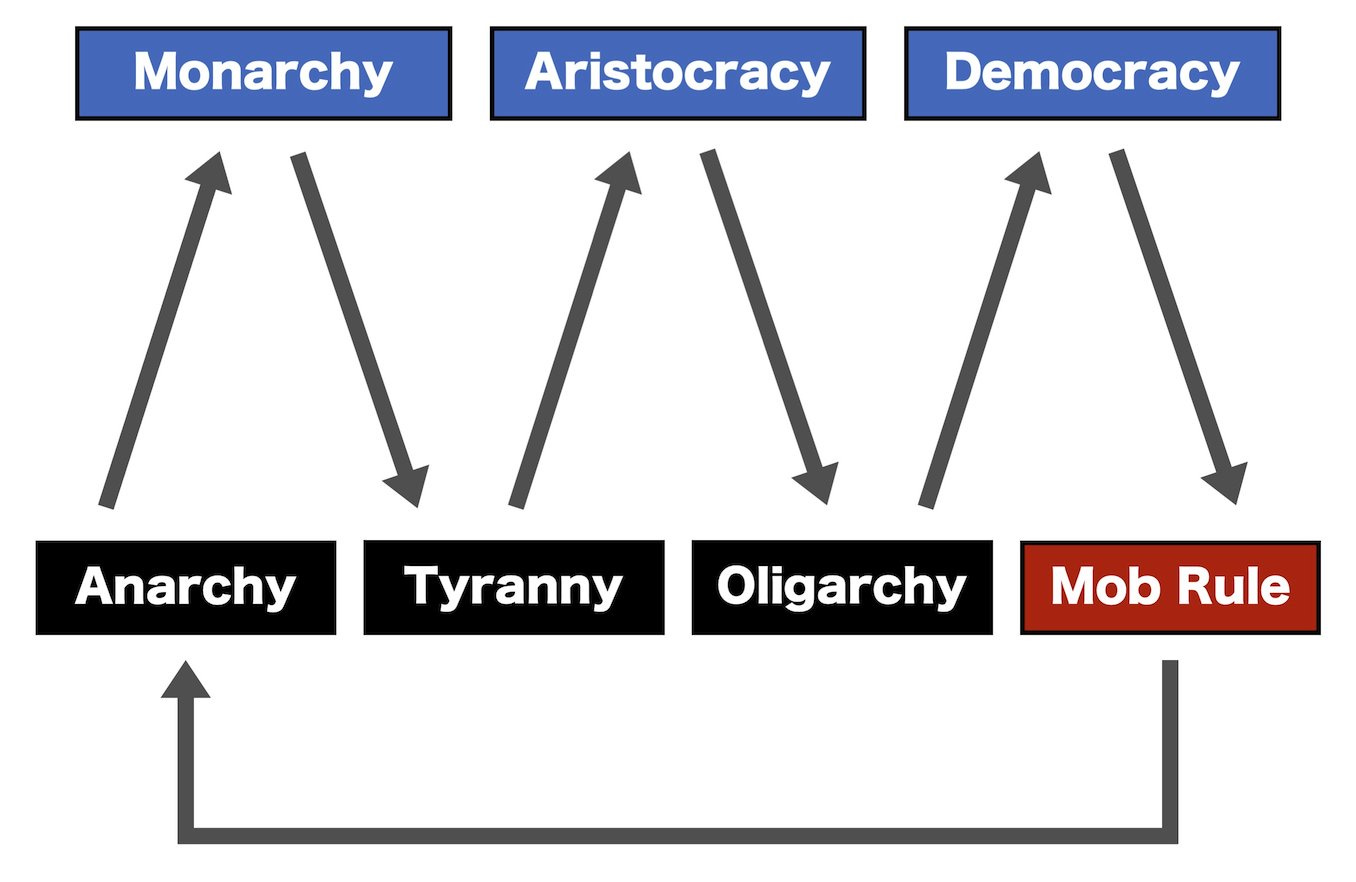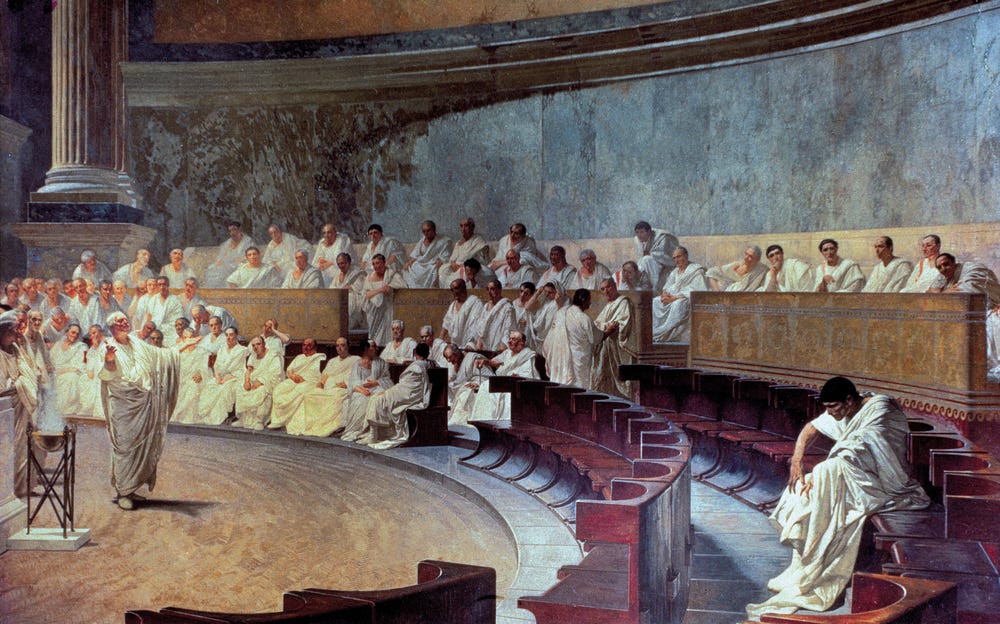Source: DailyClout.io | VIEW ORIGINAL POST ==>
And how to break the endless cycle

Ancient Greek philosophers like Socrates and Plato held deep reservations about democracy. They saw it as inherently flawed and doomed to descend into tyranny.
But a later thinker saw a way to avoid this inevitable cycle. The Greek historian Polybius, writing 200 years after Plato, proposed a new system of government. 2,000 years later, his ideas still shape the lives of people across the world — especially Americans.
Let’s explore why democracy is flawed, what Polybius proposed to break the cycle of tyranny, and how it directly shaped the U.S. Constitution…
Socrates and the “Ship of State”
First, let’s address the concerns of Socrates and Plato. The former used a metaphor for democracy, likening the Athenian state to a ship:
Imagine a vessel whose crew is completely untrained in navigation. When asked to choose a captain, the crewmates are unable to determine who is actually qualified to lead — they don’t know the ins and outs of the trade. As such, they will likely select the person who is most persuasive in earning their vote, not the one with actual expertise in seafaring.

For Socrates, democracy suffered from the problem of allowing the uneducated masses to make critical decisions for the state. Instead of a qualified leader, the best rhetorician often won, appealing to emotions rather than reason. This, he argued, made democracy a system vulnerable to manipulation, wherein politicians win by stoking public passions instead of promoting rational governance.
In Socrates’ view, voting was a skill that must be learned and exercised responsibly. Without the knowledge required to make informed choices, citizens were unequipped to select competent leaders.
Plato on Democracy and Tyranny
Plato expanded on Socrates’ concerns. In The Republic, he outlined five forms of government in a hierarchy, with aristocracy (rule by the best) at the top and tyranny at the bottom. Democracy ranked only above tyranny, as Plato believed the former inevitably decayed into the latter.

Plato argued that a democracy, by prioritizing freedom and equality, allowed citizens to pursue their individual desires unchecked. This indulgence of personal interests over the collective good creates an environment where self-centered behavior and short-term gains overshadow long-term stability.
It is out of these conditions that demagogues emerge, playing on the selfish interests of the vulnerable — and prioritizing their authority over societal well-being.

Plato’s solution? An aristocracy of philosopher-kings: rulers educated in the “good” and committed to governance through wisdom. Those in society with a profound knowledge of what is “good”, i.e., the philosophers, should be in charge.
But Plato acknowledged his system was also fragile, as even philosopher-kings would be corrupted by the desire for approval, which ultimately leads to decay.
Polybius’ Solution
200 years after Plato, the Greek historian Polybius offered a new approach to break the cycle of political degeneration. He observed that the three basic forms of government tend to decline in a repeating cycle that leads back to anarchy: monarchies become tyrannies, aristocracies become oligarchies, and democracies dissolve into mob rule.

But unlike Socrates and Plato, Polybius saw a solution in the structure of the Roman Republic. He noted that it incorporated elements of monarchy, aristocracy, and democracy, each balancing the others.
For example, Consuls functioned as executive leaders, representing monarchical power. The Senate, composed of Rome’s elite, acted as an aristocratic institution offering stability and oversight. Meanwhile, the Assemblies gave the public a democratic voice.

This system of checks and balances, Polybius argued, prevented any single group from gaining unchecked power.
His idea of a resilient government founded on the separation of powers influenced later thinkers like the French political philosopher Montesquieu, who developed his notion further. His political treatise The Spirit of Law was a major influence on the American Founding Fathers, who referenced it as they drafted the U.S. Constitution.
Today, you can see each of these forces (monarchy, aristocracy and democracy) at work in the American system…
Continue Reading
_____________
Follow DailyClout on Rumble! https://rumble.com/user/DailyClout
Please Support Our Sponsors
Birch Gold Group: “A Gold IRA from Birch Gold Group is the ultimate inflation hedge for your savings in uncertain times. Visit www.birchgold.com/dailyclout to see how to protect your IRA or 401(k).”
The Wellness Company: https://dailyclouthealth.com
Use code DAILYCLOUT for 10% off!
NativePath: Collagen supplements help you replace what you stop producing — and the studies speak for themselves. Visit https://getnativepath.com/dailyclout for a MASSIVE 45% discount plus free shipping!
Patriot Mobile: “Visit https://patriotmobile.com/dailyclout for a FREE month of service when you switch!”
Order ‘The Pfizer Papers’ and Support Our Historic Work: https://www.skyhorsepublishing.com/9781648210372/the-pfizer-papers/
Discover LegiSector! Stay up-to-date on issues you care about with LegiSector’s state-of-the-art summarizing capabilities and customizable portals. No researchers needed, no lobbyists, no spin. Legislation at your fingertips! Learn more at https://www.legisector.com/
The post “Why Plato Hated Democratic Elections” appeared first on DailyClout.
